
Soichiro Honda apparently coined the phrase "Racing improves the breed," and this was never more evident than when we parked the Dos Palmas Machine Spl. alongside the Mooneyes dragster at the Mooneyes New Year’s Party. Though separated by little more than a year, the difference between these two Gas dragsters was amazing. Wait—Gas dragsters? Who cares about Gas dragsters?
According to National Dragster (and this is no joke), “On April 1, 1957, a consortium of SoCal tracks—including Santa Ana, Lions, Pomona, San Gabriel, Kingdon, and others—voted to ban the use of exotic fuels and called for NHRA to support it, which President Wally Parks did. The so-called ‘fuel ban’ officially lasted until the end of the 1963 season, although NHRA experimented with its return at the 1963 Winternationals but ran that year’s Nationals in Indy on gas only. The 1964 Winternationals marked the official end of the ban.”
As a result of the fuel ban, there was a huge interest in gas dragsters, these two being important examples. But let’s back up to the immediate post-WWII era, when Jim and brother Tom Nelson from Carlsbad, California, and their buds formed the Carlsbad Oilers car club and raced the dry lake at El Mirage. There were no freeways then, and the lake was a long way up Highway 395 over the Cajon Pass. There had to be something better, and there was: drag racing. You didn’t need a dry lake for drag racing, you just needed and old airstrip such as Paradise Mesa, an abandoned WWII Navy emergency field in the heart of San Diego.
This story is from the {{IssueName}} edition of {{MagazineName}}.
Start your 7-day Magzter GOLD free trial to access thousands of curated premium stories, and 9,000+ magazines and newspapers.
Already a subscriber ? Sign In
This story is from the {{IssueName}} edition of {{MagazineName}}.
Start your 7-day Magzter GOLD free trial to access thousands of curated premium stories, and 9,000+ magazines and newspapers.
Already a subscriber? Sign In
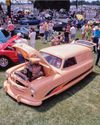
What Is Pro Street?
You know it when you see it.
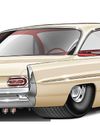
Pro Street in Pure Vision
Builder Steve Strope weighs in on the Pro Street look and what he would build today.

THE GAS ERA LIVES ON
These vintage race cars chart the evolution of technology in the early days of drag racing.
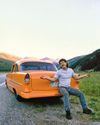
MOTOR HEAD FOR LIFE
Scott Sullivan is one of the original Pro Street pioneers. He still builds cars today out of a small shop in Dayton, Ohio.
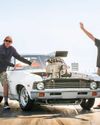
BRINGING BACK PRO STREET!
David Freiburger and Roadkill Garage built a Pro Street Nova.
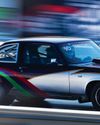
SWEET ASPIRATIONS
Jerry and Matthew Sweet added an 800ci Pro Stock mountain motor to chase HOT ROD Drag Week's Pro Street NA Record.
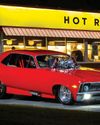
Making Bad Decisions Badder
Bradley Gray's 1970 Nova is a Hybrid! It's a streetable Funny Car.
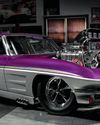
ART PROJECT
This Rad Rides by Troy-built '63 split-window Corvette went from restaurant prop to ripping up the street!
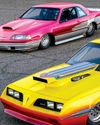
WHERE DO WE GO FROM HERE?
THE PRO STREET ERA PEAKED IN THE '80S. ARE WE IN THE BEGINNING OF A RESURGENCE?
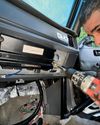
Making Connections
Project T-top Coupe: We install a Terminator X Max for big power.